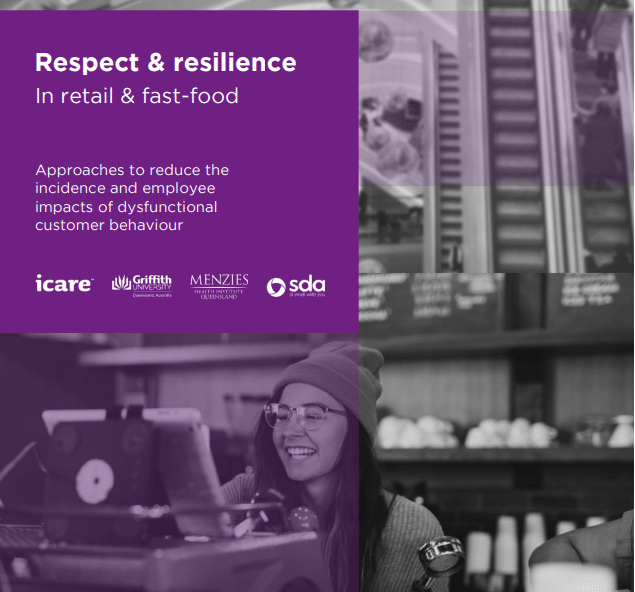Australia: Scientifically identified measures reduce abusive customer behaviour
16.11.22
In 2019, SDA Union of Australia, icare (a government safety agency) and Griffith University issued a joint report on dysfunctional customer behaviour and how it can be reduced. The preventive measures identified by the report were tested in practice with a pilot study in New South Wales and proved to be remarkably effective in reducing cases of abusive customer behaviour in retail and fast-food stores.
Four strategic directions were identified to reduce dysfunctional customer behaviour and its impact on employees:
· modifications to the customer-service environment,
· increased workplace support,
· specialised customer-service training and
· emotional regulation training for customer facing employees.
For each strategic direction following potential solutions were offered:
1. Workplace modifications
• Wider aisles
• Fewer bottlenecks
• Intuitive layouts to avoid confusion
• Well-marked queues
• Highly visible security cameras
• Sound and lighting
2. Workplace support
· Employee empowerment and supporting employee autonomy
· Formalised support and social sharing of incidents
· Rejection of a “customer is always right” ideology
· Strategies to communicate a ‘zero’ tolerance culture
3. Specialized-customer service training
Communication
• Active listening
• Interpersonal skills
• Help-seeking skills
Problem solving skills
• Managing customer anger
• De-escalation
• Negotiation
4. Emotional regulation training for customer facing employees
Training should embrace a prosocial approach to customers and focus on equipping employees with the skills to master and change their emotional reaction to dysfunctional customer behaviour, including:
• Identifying when customers are struggling to communicate their needs;
• Recognising when customer displays are not personally directed;
• Recognising and responding to emotional displays in themselves and others effectively;
• Identifying cognitive rumination in self and how to disrupt this behaviour.
The full report “Respect & resilience in retail & fast-food” is available on this link.


